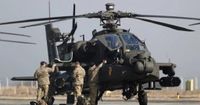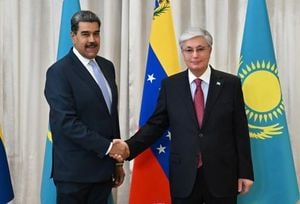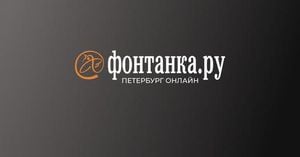The Netherlands is embarking on a significant military expansion, planning to increase its armed forces from the current 74,000 members to an ambitious 200,000. This move comes in response to rising global tensions, a situation that has prompted many countries to reevaluate their military capabilities and preparedness.
According to official reports, the Dutch Ministry of Defense currently comprises 74,000 professional soldiers, civilians, and reservists. This includes approximately 42,000 professional soldiers, of which 5,000 are women. Initially, the ministry aimed to boost the number of military personnel by 100,000, but the revised strategy now proposes an even larger force of 200,000.
Defense Minister Hais Taiman is taking cues from Sweden, where young citizens fill out questionnaires regarding their skills, motivation, and affinities related to military service. Following this, the Swedish military reaches out to promising candidates, leading to voluntary participation. Unlike Sweden's model, military service remains formally mandatory in the Netherlands, although no young person has been called to serve since 1997.
In light of the evolving geopolitical landscape, Minister Taiman addresses the possibility of reintroducing military conscription. While he asserts that military service is not currently being considered, he does not dismiss “unconventional” measures if the global situation deteriorates.
“If the situation in the world worsens, we might reconsider, but not yet,” Taiman explained, highlighting the department's cautious approach to increasing military capability without imposing immediate conscription on the youth.
The proposed expansion reflects a growing recognition among Dutch authorities that their defense infrastructure may need to adapt to face new challenges. Across Europe, nations are grappling with the ramifications of increased hostilities, including heightened tensions with neighboring countries.
This military enhancement coincides with efforts by other European nations to strengthen their own defense forces. As threats to national security increase, countries are responding with parallel expansions and investments in military technology and personnel.
The situation in Ukraine has undoubtedly influenced NATO member countries, including the Netherlands, to reassess their defense priorities. Following Russia's aggressive actions and the ongoing conflict, military allocations and preparedness have risen to the forefront of political discourse in many countries, chasing the spirit of collective defense that NATO embodies.
The Dutch government has been active in discussions within NATO regarding security policies, exchanging views on how best to bolster their defenses in cooperation with other member states. Collaborations with allied nations are becoming increasingly crucial as geopolitical frictions rise.
While some may debate the need for such a drastic increase in military personnel, the prevailing sentiment among defense officials reflects urgency. There is a desire for a military that not only meets the needs of national defense but also contributes meaningfully to NATO operations and worldwide peacekeeping missions.
As the proposed changes gain traction, it remains to be seen how the public will react to the potentially redefined role of military service in Dutch society. The voluntary program in Sweden is attracting attention, and questions about the viability of increasing enlistment and participation in the Netherlands are bound to arise.
The idea of nearly tripling the military ranks over the coming years is ambitious, and fulfilling these goals may require changes in public perception and recruitment strategies. Minister Taiman’s exploration of various frameworks indicates an openness to innovative approaches to military service, potentially paving the way for new recruitment initiatives.
This proposed military transformation is set against a backdrop of fluctuating international relations, self-defense discussions, and the pressure to remain competitive in an era where global tensions manifest in various forms.
As the Netherlands prepares to adapt its military posture for contemporary challenges, the eyes of Europe will undoubtedly be on this ambitious expansion strategy. An agile force that can promptly provide for the national security and support collective defense operations will be paramount.




